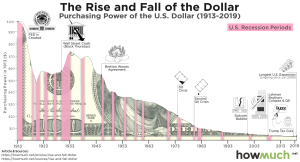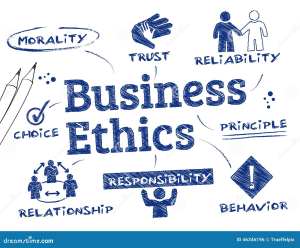Gina Raimondo’s leadership has been defined by a commitment to transformative policies that bolster US competitiveness in an ever-evolving global landscape. As the former U.S. Commerce Secretary under the Biden administration, she has championed significant economic initiatives aimed at revitalizing American manufacturing and enhancing supply chain management, particularly in response to the challenges posed by the COVID-19 pandemic. Through her innovative approach, Raimondo has overseen the implementation of critical legislation, such as the CHIPs and Science Act, which seeks to secure domestic semiconductor production—a vital component of modern technological infrastructure. Her dedication to progressive tax reforms and education funding reflects her belief that fostering economic opportunity is essential for community growth and stability. Ultimately, Gina Raimondo’s leadership exemplifies a forward-thinking vision that combines economic acumen with a strong focus on equity and accessibility.
The leadership style of Gina Raimondo illustrates a dynamic approach to governance that prioritizes substantial economic reform. She has consistently pushed for strategic policies aimed at boosting the United States’ standing in global markets, especially through her role in the Biden administration. By focusing on enhancing national supply chains and advocating for robust economic frameworks, Raimondo has set a precedent for how political leaders can effectively address both immediate and long-term economic challenges. Her initiatives also underscore the critical need for cooperation and resilience within American industries, promoting an environment where innovation can thrive. In essence, Raimondo’s leadership represents a blend of pragmatic decision-making and a deep commitment to social justice, which resonates with a wide range of constituents.
Gina Raimondo’s Leadership and Reforms in Economic Policy
Gina Raimondo’s tenure as the U.S. Commerce Secretary is marked by her bold approach to economic policy, particularly within the Biden administration. Her leadership has been characterized by a willingness to reevaluate traditional economic practices, emphasizing the need for reform in order to boost U.S. competitiveness. Under her guidance, significant initiatives such as the CHIPs and Science Act were introduced to enhance domestic semiconductor manufacturing, demonstrating her commitment to a robust supply chain management strategy. Raimondo’s policies aim not only to rectify shortages but also to ensure that America regains its leadership in critical technological sectors.
Her actions as Commerce Secretary reflect a broader vision of economic sustainability and competitiveness. For instance, during discussions about the Biden administration’s achievements, she highlighted the importance of forging international partnerships to strengthen supply chains and promote mutual growth. By engaging with countries like Indonesia and the Philippines, Raimondo aimed to create a collaborative environment that enhances America’s economic standing on the global stage. These efforts exemplify how reform-oriented leadership can pave the way for substantial economic changes, crucially influenced by her own experiences and the values instilled by her immigrant family.
Impact of Gina Raimondo’s Policies on U.S. Competitiveness
The impact of Gina Raimondo’s policies on U.S. competitiveness is notable, particularly in the context of the evolving global economy. Her focus on enhancing domestic production capabilities, especially in sectors like semiconductors, highlights a strategic shift towards self-sufficiency. This move is essential as the U.S. grapples with global supply chain disruptions, exacerbated by factors such as the COVID-19 pandemic and geopolitical tensions. By advocating for increased investment in local industries through legislations like the CHIPs Act, Raimondo positions the U.S. to not only recover but to thrive amid such challenges.
Furthermore, Raimondo’s approach bridges economic initiatives and social programs, presenting a holistic view on how to address the labor market’s needs. In her view, successful economic strategies should include provisions for social services that support workforce participation, particularly for women. By linking childcare solutions to labor market demands, her policies aim to create an inclusive economy that thrives on full participation. This recognition of the interconnectedness of social and economic issues is fundamental for enhancing the U.S.’s competitive edge in the global marketplace.
Biden Administration’s Achievements Under Gina Raimondo’s Guidance
Under Gina Raimondo’s guidance, the Biden administration has achieved significant strides in addressing economic challenges facing the nation. Raimondo played a pivotal role in implementing policies that directly respond to the urgent needs of a fast-changing economic landscape. The Infrastructure Investment and Jobs Act, one of the primary outcomes of her leadership, reflects a commitment to not only rebuild America’s infrastructure but also invest in technologies that will ensure long-term competitiveness. This act is a testament to how strategic policy-making can mobilize resources effectively to tackle pressing issues.
Moreover, Raimondo’s leadership has underscored the importance of swift action in crisis situations, such as the economic fallout caused by the pandemic. Her emphasis on a comprehensive infrastructure plan not only seeks to rebuild but also to modernize the economy in a way that prepares it for future challenges. The recognition of critical supply chains and the push for independence in semiconductor production exemplify her proactive stance on economic resilience. The milestones reached during her time in the administration suggest a foundational shift in how economic policies are crafted and prioritized, ultimately enhancing America’s global competitiveness.
Gina Raimondo’s Approach to Supply Chain Management
Gina Raimondo’s approach to supply chain management reflects a deep understanding of the complexities involved in maintaining U.S. economic stability. The pandemic highlighted significant vulnerabilities in global supply chains, compelling Raimondo to innovate and adapt. By implementing detailed assessments of critical supply chains, she ensured that vital goods remained accessible during unprecedented disruptions. This proactive strategy not only mitigated immediate shortages but also laid the groundwork for a more resilient economy that can withstand future shocks.
Raimondo’s efforts extend beyond mere crisis response; they embody a long-term vision for sustainable supply chain practices. By fostering international relationships and promoting domestic production through the CHIPs and Science Act, she aims to build a framework that reduces reliance on foreign entities for essential technologies. This shift is crucial in an era where technology and national security are increasingly intertwined. Furthermore, her initiatives empower local industries and create jobs, ensuring that supply chain stability translates into tangible benefits for the American economy.
The Role of Social Programs in Economic Initiatives
Gina Raimondo’s integration of social programs into economic initiatives challenges conventional wisdom regarding public spending and economic growth. By advocating for policies that support workforce participation among women, she recognizes that a robust economy relies on the inclusion of all segments of society. Her argument—that childcare solutions are critical for attracting women to the workforce—emphasizes the interconnectedness of social welfare and economic development. This perspective encourages businesses to invest in employee support services, thereby fostering a more inclusive and productive economy.
The Biden administration’s initiatives, influenced by Raimondo’s insights, portray a shift towards understanding economic challenges through a social lens. By framing these initiatives as essential elements of labor market strategies, Raimondo reinforces the notion that social investment yields economic dividends. This revolutionary approach not only addresses immediate labor shortages but also promotes long-term economic resilience by ensuring that all community members can contribute meaningfully to the workforce.
Gina Raimondo’s Vision for Future Economic Growth
Gina Raimondo’s vision for future economic growth is rooted in a commitment to innovation and inclusivity. She believes that the path forward for the U.S. economy must include a comprehensive approach that harnesses the power of technology while also ensuring that growth is equitable. Her advocacy for significant investments in technological infrastructure, particularly in the semiconductor sector, signifies a strategic focus on maintaining the nation’s competitive edge in a rapidly evolving global economy. By aiming to produce a substantial portion of critical chips domestically, Raimondo posits that America can safeguard its technological sovereignty and drive future advancements.
Moreover, Raimondo’s approach integrates collaborative efforts between the public and private sectors to stimulate growth. By encouraging partnerships that leverage both public investment and private innovation, she aims to cultivate an economic environment conducive to entrepreneurship and job creation. This vision reflects an understanding that sustainable economic growth can only be achieved through inclusive participation, ensuring that all Americans have access to the opportunities available in today’s economy.
Raimondo’s Legacy in the Workforce Development Sector
Gina Raimondo’s legacy in the workforce development sector is one marked by a focus on sustainability and accessibility. By emphasizing the importance of fair labor practices and supportive workplace policies, she has championed reforms aimed at equipping workers with the necessary skills to thrive in a changing economy. Her policies have consistently highlighted the need for education and job training programs that align with market demands, reflecting a strategic approach to ensure that the workforce is adequately prepared to meet future challenges.
Additionally, Raimondo’s achievements contribute to reshaping perceptions around workforce development as a vital component of economic policy. By recognizing that investing in human capital is as crucial as investing in infrastructure, she promotes a more comprehensive view of economic growth. This dual focus not only makes a strong case for enhancing educational opportunities but also leads to substantial economic returns, fundamentally altering the landscape for future generations entering the labor market.
Strategies for Navigating Economic Challenges
Strategies for navigating economic challenges under Gina Raimondo’s leadership reflect a pragmatic and resourceful approach to governance. Recognizing the immediate impacts of global disruptions, she emphasizes the need for a multifaceted strategy that incorporates innovation, international collaboration, and robust infrastructure investment. Her experience during the COVID-19 pandemic taught her that swift, calculated action is essential, which was a pivot point for many of her policies aimed at stabilizing supply chains and fostering economic resilience.
Raimondo’s ability to analyze the underlying factors contributing to economic vulnerabilities has led to targeted interventions that address both short-term needs and long-term goals. For instance, her work on supply chain management not only sought to rectify deficiencies exposed by the pandemic but also aimed to future-proof America’s economic infrastructure against similar disruptions. This dual focus on resilience and competitiveness demonstrates her commitment to positioning the U.S. as a leader in the global economy.
Reflections on Challenges Faced During Leadership
In reflecting on the challenges faced during her leadership, Gina Raimondo acknowledges the complexities that come with steering economic policy amid unprecedented circumstances. The political landscape, particularly with a divided Congress, presented significant hurdles for advancing her initiatives. However, she remained steadfast in her commitment to achieving tangible results, even if that meant making compromises along the way. This experience has offered her valuable lessons about the importance of persistence and adaptability in the face of adversity.
Raimondo also recognizes the need for transparent dialogue around the challenges of implementing economic reforms. She highlights that critiques of her policies often stem from a lack of understanding of the intricate negotiations required to secure progress. By candidly discussing these hurdles, she not only sheds light on the complexities of political life but also reinforces the importance of striving for meaningful change, even when the road is fraught with difficulties.
Frequently Asked Questions
What impact did Gina Raimondo’s leadership have on US competitiveness during her tenure as Commerce Secretary?
Gina Raimondo’s leadership as Commerce Secretary significantly enhanced US competitiveness by focusing on supply chain resilience, fostering international partnerships, and implementing the CHIPs and Science Act. Her policies aimed to reduce dependence on foreign semiconductor manufacturing and increase domestic production, thereby strengthening the US economy.
How did Gina Raimondo’s policies address supply chain management issues in the Biden administration?
During the COVID pandemic, Gina Raimondo implemented comprehensive strategies for supply chain management, including analyzing critical supply chains through data and spreadsheets. By collaborating with other nations, she worked under the Biden administration to enhance the resilience of supply chains essential for pharmaceuticals and technology.
What were Gina Raimondo’s contributions to economic initiatives under the Biden administration?
Gina Raimondo played a pivotal role in several economic initiatives under the Biden administration, including the Infrastructure Investment and Jobs Act and the CHIPs and Science Act. Her focus was on boosting domestic production, supporting job creation, and ensuring equitable access to economic opportunities, especially for women in the workforce.
How did Gina Raimondo’s leadership philosophy challenge traditional approaches to governance?
Gina Raimondo’s leadership philosophy emphasized the need to innovate and challenge traditional governance methods. By advocating for breaking outdated regulations and implementing progressive policies like tax cuts and minimum wage increases, she aimed to create fair opportunities and improve economic conditions for ordinary Americans.
What successes did Gina Raimondo achieve as Rhode Island’s governor that reflect her leadership approach?
As Governor of Rhode Island, Gina Raimondo achieved significant successes, including eliminating 30% of state regulations, increasing the minimum wage, and making community college tuition-free. These initiatives reflected her commitment to economic reform and improving the lives of her constituents, fostering a more competitive state economy.
How did Gina Raimondo respond to critiques of the Biden administration’s economic policies?
Gina Raimondo acknowledged the challenges of navigating a 50-50 Senate and a slim House majority while responding to critiques of the Biden administration’s economic policies. She defended the necessity of stimulus measures, emphasizing their role in preventing prolonged unemployment, and highlighted the importance of integrating social programs into economic initiatives to support workforce participation.
What lessons can be learned from Gina Raimondo’s leadership during economic crises?
From Gina Raimondo’s leadership during economic crises, the key lessons include the importance of adaptability, collaboration with international partners, and the necessity of balancing economic initiatives with social equity. Her approach underscored the need to address immediate economic challenges while laying a foundation for sustainable growth and opportunity.
| Key Points | Details |
|---|---|
| Leadership Philosophy | Raimondo believes in making necessary changes, even if it means disrupting the status quo. |
| Economic Initiatives | During her tenure, she cut taxes, raised the minimum wage, and made community college tuition free. |
| Regulatory Changes | She eliminated 30% of state regulations to foster economic growth. |
| Approach to Supply Chains | Raimondo responded to COVID-related supply chain issues by developing comprehensive spreadsheets and enhancing international partnerships. |
| CHIPS and Science Act | The act aims to manufacture 25% of critical semiconductors domestically by 2030. |
| Response to Criticism | Raimondo acknowledged some compromises but emphasized the challenges of governance in a divided Congress. |
| Diverse Workforce Initiatives | She linked social program needs to labor market initiatives to support employer growth and workforce participation. |
Summary
Gina Raimondo’s leadership is characterized by her readiness to implement necessary changes and her commitment to fairness and opportunity for all Americans. She emphasizes that progress often requires breaking from tradition and that economic and social policies must work together to create a competitive economy. Her tenure highlights the importance of pragmatism in leadership, as seen in her approaches to tax reform, regulatory changes, and supply chain management during her time in office.




